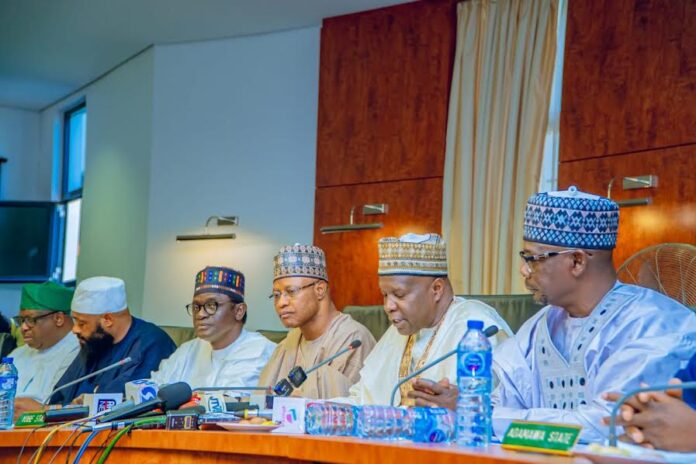By Sunday Matthew Taggah, Kaduna
Over 40 journalists from various local and international media platforms were on Saturday denied access to the venue of the Northern States Governors’ Forum meeting at the Sir Kashim Ibrahim Government House in Kaduna.
The development has sparked widespread outrage among members of the press, who described the incident as a historic low for journalism in the state.
Gathered to cover the high-profile meeting, journalists were stunned when security operatives, allegedly acting on instructions from the office of the Chief Press Secretary (CPS) to the Governor, Ibrahim Musa, blocked their entry without explanation.
Some reporters were left waiting under the scorching sun for nearly two hours, only to be turned away.
“This is the first time something like this has happened in Kaduna since the return of democracy in 1999,” lamented one of the affected journalists. “It is a dark day for press freedom.”
The media professionals, representing a broad spectrum of media from community radio stations to major national outlets, condemned the action as unethical, unprofessional, and a blatant abuse of office. Particularly frustrating for many was the role of the CPS, himself a former journalist, who they accuse of betraying the very profession he once represented.
“The CPS’s actions are not only disgraceful but also disrespectful to the media fraternity,” said a correspondent.
“To treat fellow journalists with such disdain shows a lack of professionalism and empathy.”
Several journalists also took aim at the Kaduna State Council of the Nigeria Union of Journalists (NUJ), accusing its leadership of remaining silent while its members were subjected to what they described as “unethical humiliation.”
“The NUJ appears to have lost its voice. This silence is unacceptable. If the union cannot defend our rights, then who will?”another journalist lamented.
The journalists further argued that the exclusion of certain media personnel in favor of a handpicked few raises serious questions about transparency and fairness. Some even alleged that the NUJ may have been complicit in the selection process, calling on the council to clarify its role and take a stand on the matter.
Abdulwaheed Olayinka Adubi, a veteran journalist based in Kaduna, expressed dismay at the situation, warning that officials entrusted with media relations should not view themselves as superior to their colleagues. “Those whose job it is to promote and protect the media should act as partners, not gatekeepers,” he said. “Their loyalty should be to both the government and the public but certainly not at the expense of press freedom.”
The aggrieved journalists also questioned the competence of the CPS, accusing him of failing to project the image of the Kaduna State Government effectively and of sowing division within the press corps.
“Since his appointment, he has not lived up to the demands of the office. This incident is just the latest example of his inadequacy,” he said.
They concluded by warning that no media outlet should be underestimated, citing numerous examples where smaller newspapers and radio stations played pivotal roles in holding governments accountable.
“Every journalist, regardless of their platform, deserves access and respect. To ignore us is not only undemocratic but it’s dangerous.”
As of the time of filing this report, the Kaduna NUJ Council had yet to issue a formal response.

